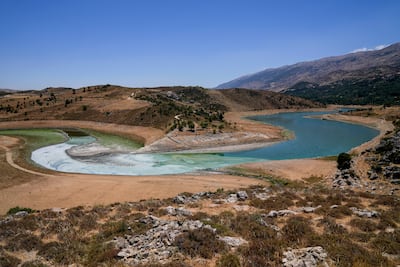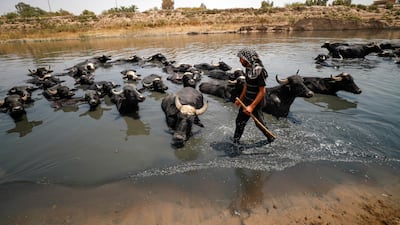Millions of people in Syria and Iraq face going without water, electricity and food amid rising temperatures, a lack of rainfall and drought, international aid groups warned on Monday.
The neighbouring nations, both battered by years of conflict and mismanagement, are in need of rapid action to combat severe water shortages, the groups said. Drought is disrupting electricity supplies as low water levels affects dams, impairing essential infrastructure such as health care.
More than 12 million people across the two countries are affected, including 5 million in Syria who are directly dependent on the Euphrates River. In Iraq, drought and the loss of water supply from the Euphrates and Tigris is affecting 7 million people.
Severe drought which persisted through the early 2000s to the mid 2010s has been identified by conflict analysts as one of the triggers for the rise of extremist groups in Iraq and Syria.
Drought hit the Euphrates valley which runs through both countries particularly hard between 2006 and 2009, with catastrophic results for farming communities, a 2013 report by the Centre for Climate Security said.
Thousands of farmers lost their jobs in both countries as crops failed, and migrated to cities where they were unable to find employment. In Syria, this exacerbated deteriorating social conditions that led to widespread uprisings in 2011. In Iraq, a similar rural-urban migration process has been seen in times of severe drought.
Today, about 400 square kilometres of agricultural land is prone to drought, the groups said, as two dams in northern Syria, supplying power to 3 million people, face imminent closure.
Carsten Hansen, regional director for the Norwegian Refugee Council, one of the aid groups behind the warning, said that for hundreds of thousands of Iraqis displaced and many more fleeing for their lives in Syria, the unfolding water crisis “will soon become an unprecedented catastrophe pushing more into displacement”.
Other aid groups included Mercy Corps, the Danish Refugee Council, Care international, Acted and Action Against Hunger. They said several Syrian provinces – including Hassakah, Aleppo and Raqqa in the north and Deir el-Zour in the east – have witnessed a rise in waterborne disease. The areas include displacement settlements housing tens of thousands of people displaced in Syria’s 10-year conflict.

Care’s regional chief for the Middle East and North Africa, Nirvana Shawky, urged authorities and donor governments to act swiftly to save lives. The latest crisis comes on top of war, Covid-19 and severe economic decline, she said.
“There is no time to waste,” said Gerry Garvey of the Danish Refugee Council. The water crisis was likely to increase conflict in an already destabilised region, he said.
Severe water shortages have also hit Lebanon, which is mired in the worst economic and financial crisis in its modern history, where more than 4 million people – mainly vulnerable children and families – face a critical lack of clean water in the coming days, the UN's children agency said last week.
Severe fuel shortages have halted the work of thousands of private generators long relied on for electricity in the corruption-plagued country.
Unicef called for urgent restoration of the power supply to keep water services running.
Lebanon's rivers are also heavily polluted. Activists have long warned about pollution levels caused by sewage and waste in the Litani River, the country's longest and a major source of water supply, irrigation and hydroelectricity.

